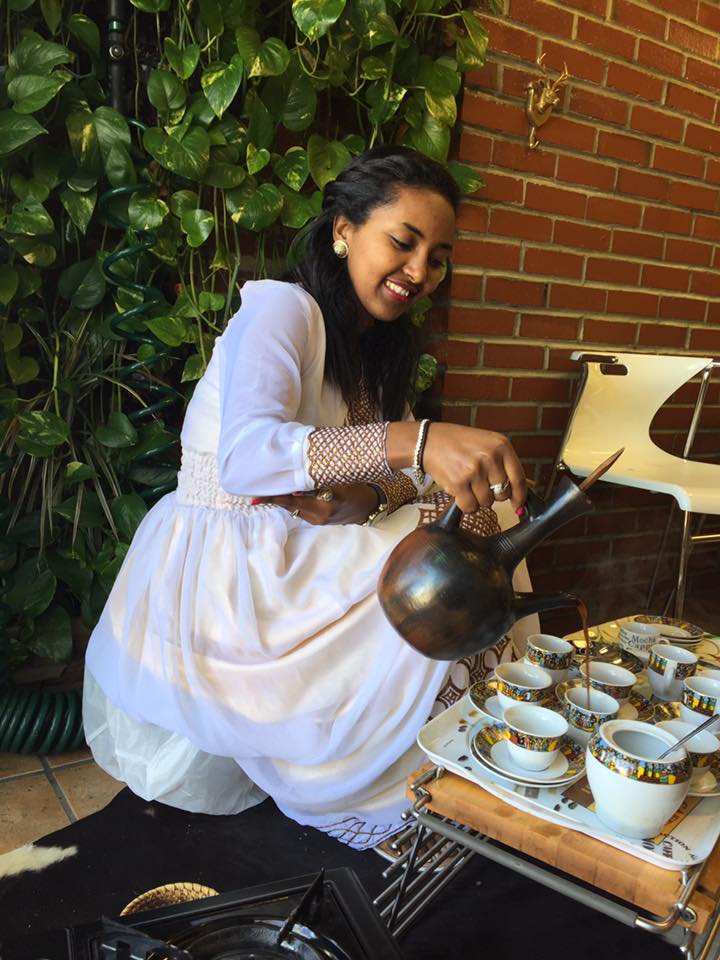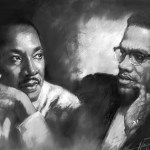Tizita: Memories that Bind; Remembrances that Keep Us
Written by Teodrose Fikre, July 12, 2017
Memories. We simultaneously try to flee their gravity as we try to remember past happiness. In Ethiopia, we call these remembrances tizita. Yet these reflections and flashbacks are not constrained by borders or language. Tizita, the hold the past has on our lives, is a universal human emotion that binds all of us in the cocoon of reminiscence. Memories are a double-edge sword; the same way we gain happiness from remembering the past, we can also be marooned in melancholy when we think of the days gone by. Homes we left, loved ones we lost, innocence dashed, happiness we once felt—tizita is at once a blessing and a burden.
Growth is painful; wisdom comes by way of woe and knowledge is gained through the womb of distress. Even the happiest people among us have their moments of ennui as they remember a childhood memory and think back whimsically at traces and flashes of a life they once lived. These memories become more distant and yet more powerful after going through a period of turbulence. I used to wonder why my memory of Ethiopia was so detached as if my days growing up in Bole was a movie I saw instead of a life that I actually lived.
I understand it now though, when homeostasis is disturbed and life interjects with three kisses of hardship, the way we cope and move on through the painful moments is to compartmentalize the wounds we experience and lock them away in the recesses of our minds. The first time I felt anguish in my heart was leaving my old neighborhood in Ethiopia and arriving in America with my family as refugees. Gone was the gregarious and rambunctious child, I sulked and inverted my extrovert energy into an introvert sullenness. Friends gone and my stomping grounds taken away, I reverted to watching TV all the time as my once loquacious nature was replaced with quietness.
This is why my memory of Ethiopia is so distant; I pushed my recollections away as a way to not be reminded of a happiness that departed my company. I used to be a sight to behold as a five year old in Ethiopia, I would hold court in front of adults and lecture them about the beauty and history of Ethiopia. Let anyone cast aspersions towards the nation I loved deeply in my heart and they were met with stern rebukes even though I had yet to learn the Amharic alphabet. This affable yet confident version of me was swiftly replaced as travels to a new land inculcated my spirits with tepidity and mournfulness.
What I felt—the way tizita embraced me with a netela (blanket) of dolefulness—is something that all of us have gone through. Whether you arrived in a new land as an immigrant or remained in the same town of your birth, at one point or another, crucibles intervene and knocks us wayward into the direction of heartache. Though various stages in our lives induce sadness, it’s always the original hurt that serves as the basis of how we deal with tribulation. Memories can at once give us reprieve from present stress as they imprison us in the ways things once were.
As I was talking to a fellow sojourner at my favorite restaurant in Fort Collins called FoCo Cafe (Business Case for Kindness), in the middle of telling her about the article you are reading now, it suddenly hit me and I realized why memories have such a big hold on us all. We idealize the past because that is our way of dealing with present hurt. The more we go through the throes of life and feel the arrows of distress, the more we look back and rhapsodize about the greatness of the past. It’s the most ironic thing, even if the past was less than ideal, in time we turn past moments into times of joy. Old flames who took Bunsen burners to our hearts are seen through rose colored glasses; times of past tense hardships gain present significance. For some this is not the case; while a lot of us look back at our youth with fond memories, others blanch when they think back and remember the suffering they endured. Yet, painful or pleasant, all of us are formed and informed by the experiences of the past.
It’s so simple yet so complex. At the root of most of human suffering is the lack of love; either we lack self-love or we lack the ability to love others. Tizita occupies our minds and makes camp in our cortex only to make us revert over and over to the default position we settled on as a means of coping with hurt. People choose to lash in and hurt themselves or lash out and hurt others; both polarities are driven by memories of hurt as we compensate by leaning either towards animus or codependency. Tizita bedevils the best of us; like shadows we can’t escape, memories follow us from station to station no matter where we go and how fast we try to get there.
A long time ago, when I broke up with my ex, I went down to a local Ethiopian restaurant to pick up some tibs and kitfo. While waiting for my food, I ordered a beer and started observing others. I turned to the right and saw a man sipping cognac by himself lost in deep thought as Tizita was playing in the background. His sadness jumped out from his heart and sank right into my synapses for I too was hurting even though I did not want to admit it. I made a grave decision that day; I swore I would never be that guy and quickly went out to a nightclub later on that evening in order to chase happiness in the clasp of the first woman that I met. A decade lost as I insisted on feeding flesh only for flesh to feed me nothing but empty gurshas. That which run from becomes the very thing we run towards after all.
I write about tizita and the memories of my childhood as I near a crossroad. A two year journey of hardship and painful growth is coming to an end; as I set sail towards a renewed life full of love and purpose I am mindful of how to synthesize this experience. This time around, I will not make it my aim to quickly forget these memories; I will hold on to each facet of this journey instead of pressing fast forward. I don’t write this with any sense of remorse; in all honesty it took tribulation for me to stop running from my past and to find my core apart from trying to find acceptance from others. I spent the better part of my life trying to fit in as a way to compensate for the times I felt like an outsider growing up. I missed my once home and I tried to return to what once gave me happiness by seeking love and validation from others. But home is not just a physical space; home is in our hearts and we can find love and happiness if we first accept and love ourselves before seeking love outwardly. All comes full circle, as I get set to start the next phase in my life and travel to grounds I once swore I would never set foot in again, I gained the one thing which no amount of degrees, money and credentials could imbue in my heart. Though I gave up childish ways, I have maintained the quality that children have in spades—I refused to let painful memories rob me of my smile. I hope this for you and the rest of humanity; don’t let past memories haunt you and don’t dwell in what ifs. Tizita—both good and bad—is like music; sometimes the melodies are blues other times jazz but through it all tizita is the music that gives our lives meaning, context and purpose above all. Enjoy the ups and downs—feel every note of tizita—for happiness is not a destination, it is a part of life that is only appreciated when we go through the totality of life’s experiences. #Tizita
All comes full circle, as I get set to start the next phase in my life and travel to grounds I once swore I would never set foot in again, I gained the one thing which no amount of degrees, money and credentials could imbue in my heart. Though I gave up childish ways, I have maintained the quality that children have in spades—I refused to let painful memories rob me of my smile. I hope this for you and the rest of humanity; don’t let past memories haunt you and don’t dwell in what ifs. Tizita—both good and bad—is like music; sometimes the melodies are blues other times jazz but through it all tizita is the music that gives our lives meaning, context and purpose above all. Enjoy the ups and downs—feel every note of tizita—for happiness is not a destination, it is a part of life that is only appreciated when we go through the totality of life’s experiences. #Tizita
“Memories of our lives, of our works and our deeds will continue in others.” ~ Rosa Parks
If you appreciate this write up and the message of love and healing behind it, share this article on social media as you deem it worthy to be heard by others using #Tizita
The foundation of all memories is love, whether abundance of love or lack of it, it is love that serves as the connection to our past. Check out the Ghion Cast below where I discuss the very memories of love that form and inform who we are.
Check out the rendition of Tizia that moves me to write this article, all is well that ends in well with music::
Lastly, let me wrap this up with the queen of Tizita music, her name is Bezawork Asfaw, this is her music that I used to listen to with my mom growing up in Ethiopia.
In memory of Asnaketch Worku, if Bezawork is the queen of Tizita, Asnaketch is the first lady and royalty who paved the way for Bezawork. Click HERE or click on the picture below to hear a two hour segment of the best of Tizita songs as sung by the greats.
Teodrose Fikre
Originally from Ethiopia with roots to Atse Tewodros II, Teodrose is a former community organizer whose writing was incorporated into Barack Obama's South Carolina primary victory speech in 2008. He pivoted away from politics and decided to stand for collective justice after experiencing the reality of the forgotten masses. His writing defies conventional wisdom and challenges readers to look outside the constraints of labels and ideologies that serve to splinter the people. Teodrose uses his pen to give a voice to the voiceless and to speak truth to power.
Latest posts by Teodrose Fikre (see all)
- Nexus of Evil: When Cancerous Corporatism Hijacked the District of Caligula - December 4, 2017
- This Week’s Recap of Corporate Media Bullcrap - December 2, 2017
- Trading Humans: It’s Happening in Our Lifetime - December 1, 2017
















Leave a Reply
Be the First to Comment!